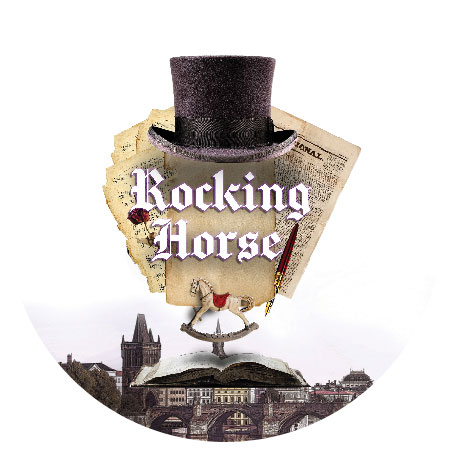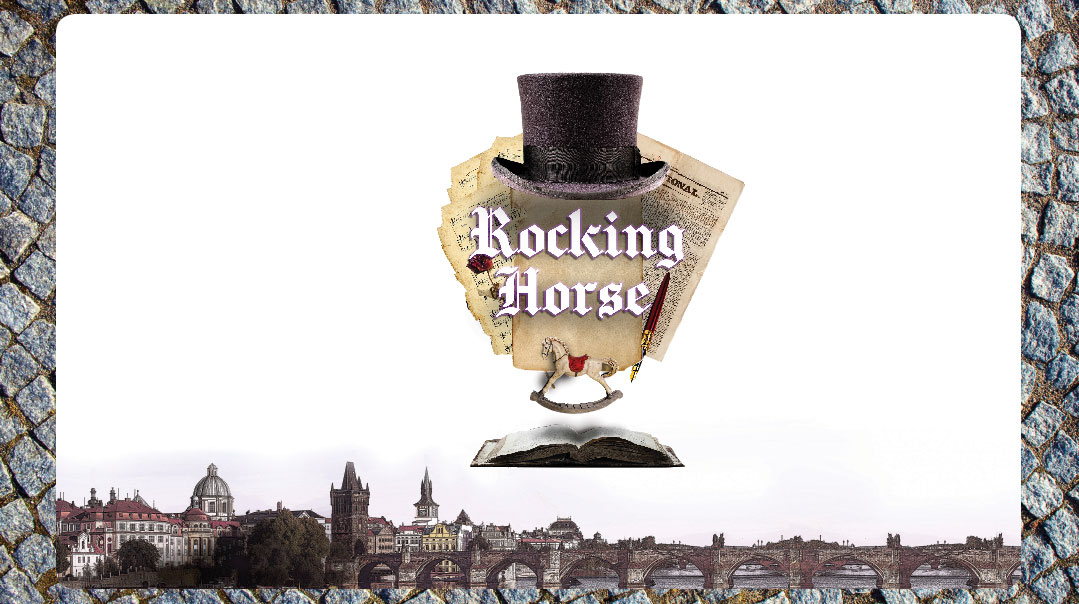Rocking Horse: Chapter 35

What will be when Tatte falls over and he needs a strong arm to help him up?

Holding the picture of the three girls—Hannah, Perla, and Becca — Emmy kneels beside her Zeide. “Zeide, can I take it with me?”
“Emmy!” Hannah steps towards her daughter, stretches her hand to pluck the photograph away. Emmy holds it away. “I’m allowed to ask, am I not?”
Hannah turns to look at Tatte. His eyes are still clear, his composure unruffled. Does the photograph not mean something to him?
“It’s just, how will I persuade people to help me find her if I do not know what she looks like? And it’s not only for me.” Emmy lifts the picture towards her face. “When you look—the heart-shaped face, long lashes, the stare so old and composed, though she is the size of a child… well, then, she no longer just another little Jewish girl no one cares about. She is a person.” Emmy pauses and looks down at the picture. “And she is beautiful.”
Tatte’s shoulders are bent as he looks up at them, sadly. “So you are leaving, eh? Heading back to your promised land.”
Hannah puts her hand on his shoulder. He covers it with his own; his fingers gnarled like an old twig, the skin hanging loose as if his spirit has suddenly shrunk, leaving his body too large for him.
Emmy looks at them for a moment. “Zeide, Prague is no promised land.”
“And why not? No goyim harassing. Attacking.”
“Not in the same way, true. They do not tackle the young boys in the streets on the way to cheder. But—”
“But?”
What is he trying to say? Is this some kind of recrimination—you return to dreamland and leave us at the mercy of the Jew-haters? But what is she to do about it? Hannah speaks gently. “We have our fair share, Tatte. They just show it differently.”
He sighs. “So we are not at rest anywhere.” He pauses. “There has been talk, you know, of the Promised Land.” He drums his fingers on the table, unsettled. “Buying land from Arabs or the Ottomans and becoming farmers. Can you imagine, Yidden being farmers?
“But there is no need for taverns there, as the Moslems do not drink, so they cannot be tavern-keepers. And there are only so many craftsmen each town needs. Not everyone can be a porter or a shoemaker or a tailor. So—farmers!”
“It is strange, is it not?” Hannah tries to imagine it: long peyos tucked behind ears, hands clutching spades. Shielding themselves from the hot sun, instead of the ice and snow.
Tatte’s hand—his worn, loose-skinned hand punctuates the air. “There are some rabbanim who say, better try your fortune against the Arabs, than head to the treifere medinah.”
Emmy holds the picture loosely by her side. She has won that particular battle. How does she always manage to get exactly what she wants? She pipes up. “America. Mama always says that even if she were given the choice, she would not go there. Not even for a visit.”
Oops! We could not locate your form.


